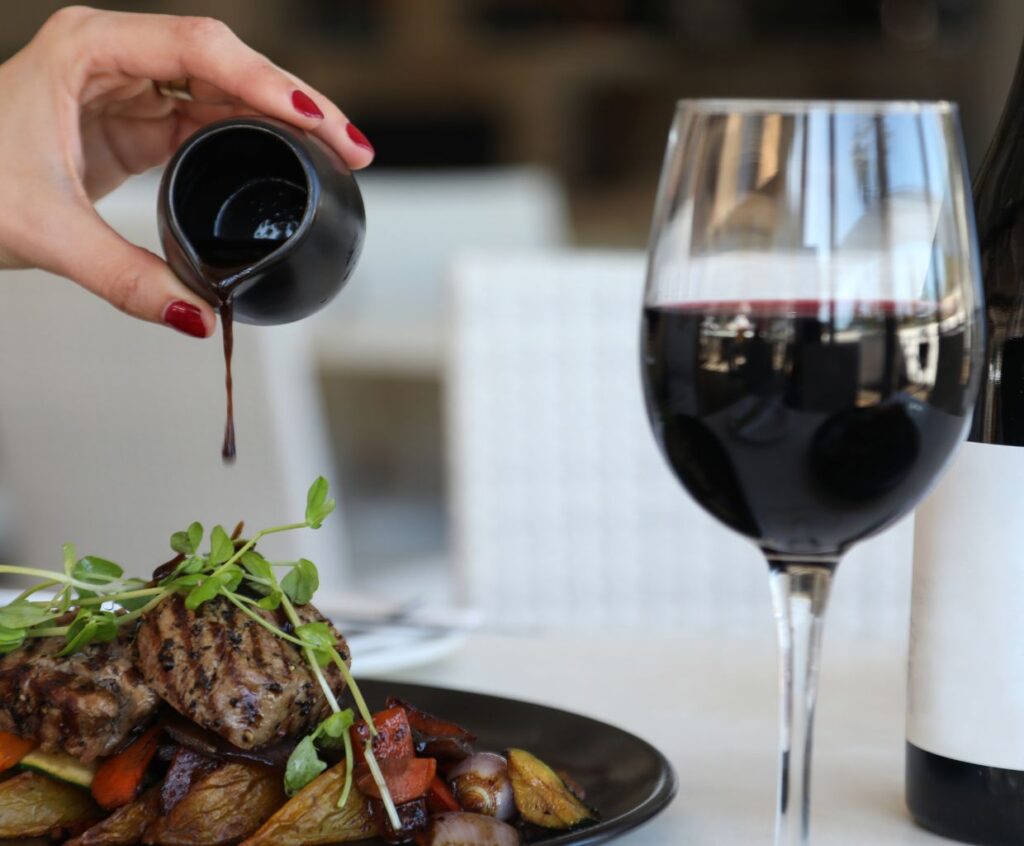Red Wine and Appetite: Exploring the Connection and Possible Effects on Your Hunger
When indulging in a glass of red wine, there’s more to it than just the taste and relaxation it offers. Red wine has long been associated with various health benefits, and its potential effects on appetite and hunger have gained significant attention in recent years.
While some studies suggest that moderate red wine consumption can suppress appetite, exploring the connection between red wine and our cravings is essential to understanding the potential effects on our hunger levels.
How Red Wine Affects Appetite
Red wine contains a compound called resveratrol, which is believed to have appetite-suppressing properties. Resveratrol activates a protein called SIRT1, which plays a crucial role in regulating metabolism and reducing the feeling of hunger.
Furthermore, the alcohol content in red wine can impact appetite. Alcohol is known to stimulate the release of certain hormones that can temporarily decrease appetite. However, it’s important to note that excessive alcohol consumption can adversely affect health and should always be consumed in moderation.
Possible Effects on Your Hunger
While studies have shown promising results regarding red wine’s potential to suppress appetite, it’s essential to remember that individual responses may vary. Some individuals may experience a decrease in hunger after enjoying a glass of red wine, while others may not notice any significant changes.
Moreover, the effects of red wine on appetite are likely to be influenced by various factors, including genetics, overall diet, and lifestyle choices. Therefore, it’s crucial not to rely solely on red wine as a hunger suppressant but to incorporate it into a balanced and healthy lifestyle.
Can consuming red wine before a meal affect portions and overall calorie intake?
Yes, they are consuming red wine before a meal can affect portion sizes and overall calorie intake. Several factors contribute to this.
Firstly, red wine contains alcohol, which can increase appetite and decrease inhibitions. This may lead to consuming more significant portions or indulging in high-calorie foods during meals. Alcohol can also impair decision-making and self-control, making it more difficult to resist overeating.
Furthermore, red wine itself contains calories. On average, a 5-ounce glass of red wine contains about 125 calories. If multiple glasses are consumed before a meal, this can contribute significantly to the overall calorie intake.
Additionally, research suggests that alcohol, including red wine, can stimulate the appetite and increase the enjoyment of food, potentially leading to higher calorie intake during the meal.
It is important to note that moderation is vital. Consuming a small amount of red wine before a meal may have potential health benefits due to its antioxidant properties. However, excessive consumption can negatively affect portion control and calorie intake.
Does consuming red wine impact appetite differently compared to other alcoholic beverages?
There is limited scientific research specifically comparing the effects of red wine on appetite with other alcoholic beverages. However, some studies suggest that red wine may uniquely impact appetite due to its high antioxidant content and potential health benefits.
Red wine contains resveratrol, which has been found to have potential appetite-suppressing effects. A study published in the Journal of Nutritional Biochemistry found that mice given resveratrol had reduced food intake and decreased body weight gain compared to control mice.
Additionally, some research suggests that red wine may increase satiety and decrease overall calorie intake. A study published in Obesity found that participants who consumed red wine with a meal had a lower calorie intake than those who consumed water or a different alcoholic beverage.
However, other studies have found conflicting results. For example, a study published in the American Journal of Clinical Nutrition found that red wine did not significantly impact appetite or food intake compared to white wine or beer.
It’s important to note that the effects of alcohol on appetite can vary greatly depending on individual factors such as genetics, metabolism, and personal preferences. Additionally, excessive alcohol consumption can increase appetite and overeating due to its impact on inhibitions and decision-making.
Overall, more research is needed to fully understand the specific effects of red wine on appetite compared to other alcoholic beverages. It’s advisable to consume alcohol in moderation and consider individual factors and preferences when considering its impact on appetite.
Is there a specific component in red wine that can suppress or stimulate appetite?
A component in red wine called resveratrol has been shown to have appetite-suppressing effects. Resveratrol activates a protein called SIRT1, which can help regulate metabolism and reduce food intake.
However, it is essential to note that the effects of resveratrol on appetite are still being studied, and more research is needed to fully understand its mechanisms and potential benefits.
How does the chemical composition of red wine contribute to its potential effects on hunger and satiety?
The chemical composition of red wine plays a role in its potential effects on hunger and satiety. Red wine contains several compounds that can influence these feelings:
1. Alcohol: Red wine contains ethanol, which can stimulate and inhibit appetite. In small quantities, alcohol can stimulate appetite, but it can suppress it in larger doses.
2. Polyphenols: Red wine is rich in polyphenolic compounds, such as resveratrol, quercetin, and anthocyanins. These compounds have been shown to have anti-inflammatory and antioxidant properties. Some studies suggest that polyphenols can increase satiety by influencing the release of appetite-regulating hormones, such as ghrelin and leptin.
3. Tannins: Red wine contains tannins, a polyphenol type. Tannins can give a dry and astringent sensation in the mouth. This sensory experience may contribute to a feeling of fullness and reduce the desire to eat more.
4. Sugar: Red wine may contain residual sugar, which can contribute to its taste and sweetness. The presence of sugar can potentially increase the calorie content of the wine and influence hunger and satiety.
5. Acids: Red wine contains various acids, such as tartaric, malic, and citric acid. These acids contribute to the wine’s taste and can stimulate the secretion of digestive enzymes, potentially enhancing feelings of satiety.
It is important to note that the effects of red wine on hunger and satiety can vary depending on individual factors, such as metabolism, overall diet, and alcohol tolerance. Moderation is vital, and excessive red wine consumption can negatively affect health and appetite control.
Red Wine and Appetite – Conclusion
Red wine can indeed impact appetite, thanks to its resveratrol content and the effects of alcohol on hormone release. However, it’s essential to approach red wine consumption mindfully and in moderation. While it may offer potential benefits for appetite suppression, it should not be viewed as a standalone solution for managing hunger.
As with any dietary consideration, consulting with a healthcare professional or nutritionist is recommended to determine how red wine can fit into your overall diet and lifestyle goals. Remember, balance and moderation are essential!




